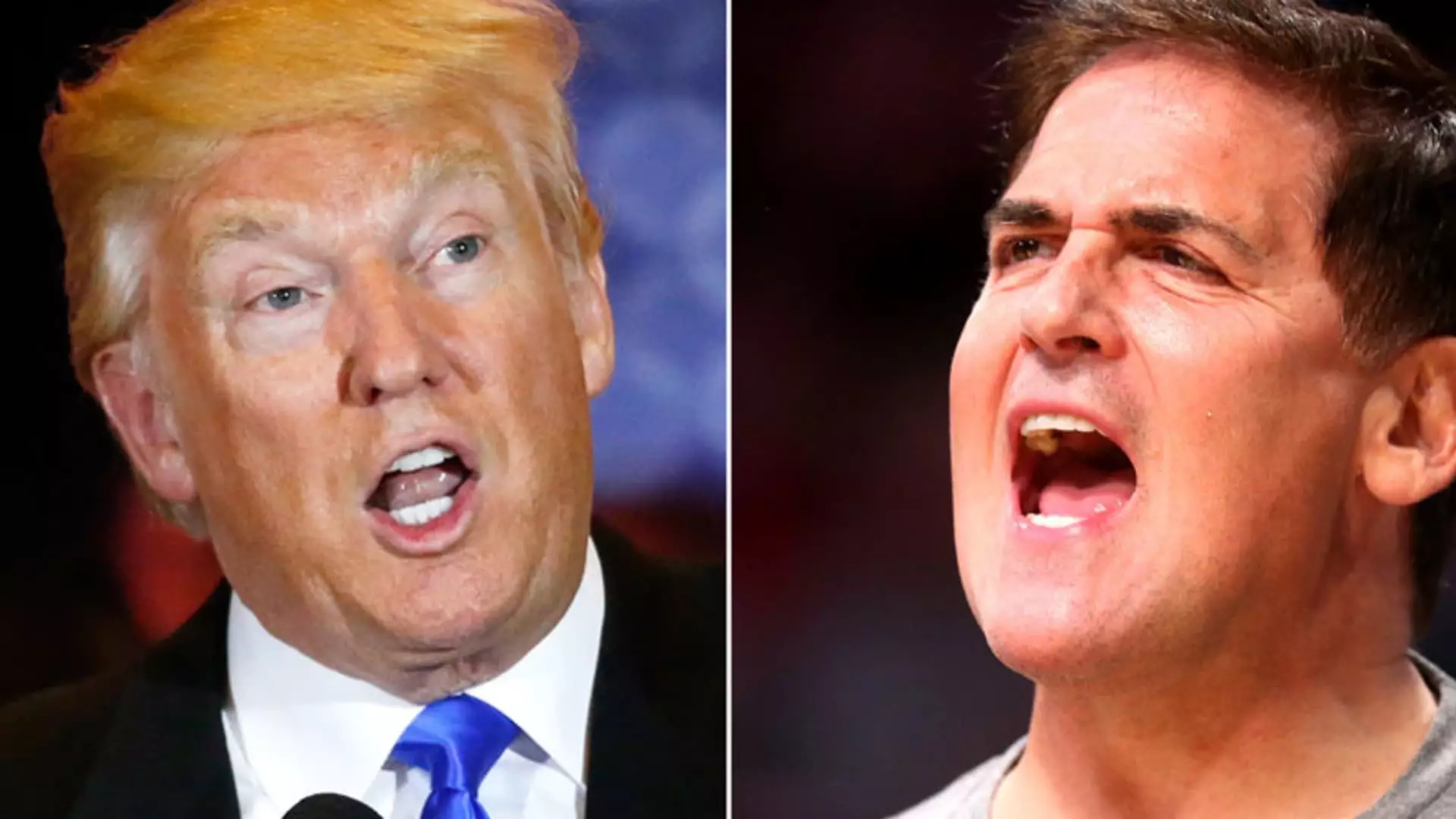In a recent turn of events within the complex landscape of American politics, former President Donald Trump launched a scathing attack on billionaire entrepreneur Mark Cuban via his social media platform. Trump referred to Cuban as a “Loser,” drawing attention to their shifting dynamics from a time when Cuban publicly praised him. This feud not only highlights the tenuous alliances that can form in politics but also underscores how rapidly friendships can sour when political aspirations come into play.
The animosity seemed to stem from Cuban’s pointed critiques of Trump’s proposed tariffs. During a campaign rally for Vice President Kamala Harris, Cuban declared that Trump had a fundamental misunderstanding of international trade, claiming that Trump erroneously believed that China would bear the financial burden of tariffs. This critique is both a personal jab at Trump and a broader commentary on his economic policies, which have drawn skepticism from various economists. The debate around tariffs brings to light the complexities of globalization and domestic policy, making it a contentious issue that could alienate certain voter bases.
From Allies to Adversaries
The history between Trump and Cuban offers an intriguing context for their current rivalry. Back in 2015, Cuban was a vocal supporter of Trump, even touting him as a positive force for American politics. Yet, as the political landscape evolved, so did Cuban’s allegiances. His endorsement of Hillary Clinton in the 2016 election marked a pronounced shift that has only deepened in the current election cycle. This ongoing feud signifies not just personal differences, but also a clash between contrasting ideologies and what these billionaires represent in the larger social context.
Cuban’s role as a campaign surrogate for Harris suggests a deliberate effort to rebrand himself in opposition to Trump’s legacy. In doing so, he aims not only to influence public policy but potentially pave the way for his own future political ambitions. Speculation about a possible government appointment, particularly regarding the role of SEC Chair, showcases his desire to stake a claim in the political arena.
The Bigger Picture: Rivalries Among the Elite
Amidst this personal conflict, the dynamics between billionaires demonstrate how financial power and political capital intersect in American politics. Trump’s embrace of fellow billionaire Elon Musk as a campaign surrogate illustrates an effort to consolidate a faction of mega-wealthy supporters who can rally to his cause. This rivalry between Musk and Cuban adds an intriguing layer to the political narrative, creating a microcosm of larger themes around class, influence, and governance in a democratic society.
The battle between Trump and Cuban reflects not only personal grievances but also larger conversations regarding economic policy, political alliances, and the role of wealth in shaping political discourse. As the political landscape continues to shift, the implications of such rivalries will likely influence voter sentiments and party strategies moving forward, indicating that in the realm of politics, allegiances can be as fleeting as they are pivotal.

Leave a Reply